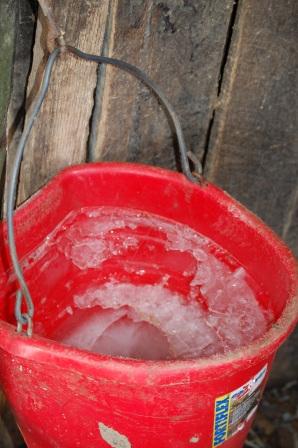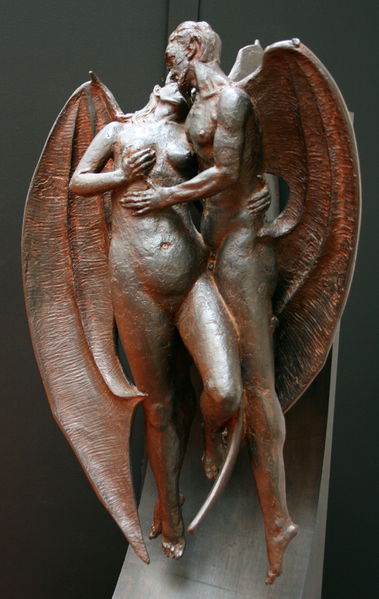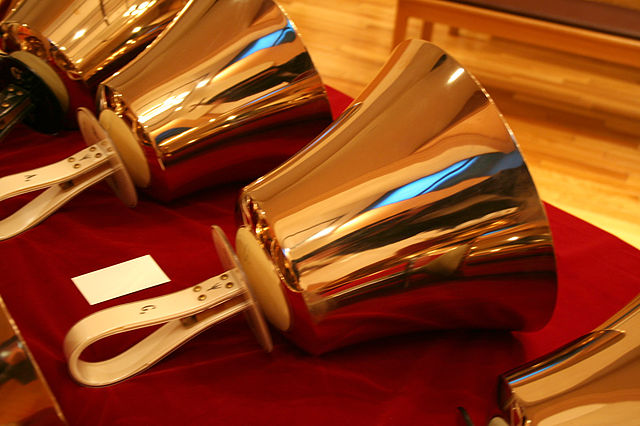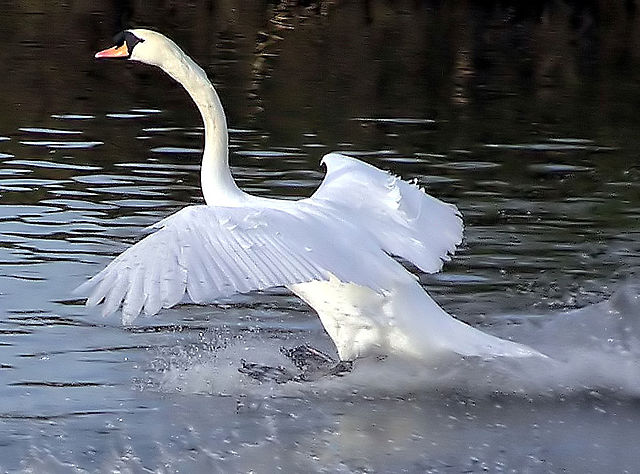Exeter Riddle 1
MEGANCAVELL
Date: Wed 20 Feb 2013Matching Commentaries: Commentary for Exeter Riddles 1-3
Hwylc is hæleþa þæs horsc ond þæs hygecræftig
þæt þæt mæge asecgan, hwa mec on sið wræce,
þonne ic astige strong, stundum reþe,
þrymful þunie, þragum wræce
5 fere geond foldan, folcsalo bærne,
ræced reafige? Recas stigað,
haswe ofer hrofum. Hlin bið on eorþan,
wælcwealm wera, þonne ic wudu hrere,
bearwas bledhwate, beamas fylle,
10 holme gehrefed, heahum meahtum
wrecen on waþe, wide sended;
hæbbe me on hrycge þæt ær hadas wreah
foldbuendra, flæsc ond gæstas,
somod on sunde. Saga hwa mec þecce,
15 oþþe hu ic hatte, þe þa hlæst bere.
Who among heroes is so sharp and so skilled in mind
that he may declare who presses me on my journey,
when I rise up, mighty, sometimes savage,
full of force, I resound, at times I press on,
5 travel throughout the land, I burn the people’s hall,
plunder the palace? The reek rises,
grey to the roofs. There is a clamour on the earth,
the slaughter-death of men, when I shake the forest,
the quick-growing groves, topple trees,
10 sheltered by the sea, pressed into wandering
by the powers on high, sent afar;
I have on my back that which earlier covered each rank
of the earth-dwellers, flesh and spirit,
swimming together. Say what covers me,
15 or how I am called, who bear that burden.
Notes:
This riddle appears on folio 101r of The Exeter Book.
The above Old English text is based on this edition: Elliott van Kirk Dobbie and George Philip Krapp, eds, The Exeter Book, Anglo-Saxon Poetic Records 3 (New York: Columbia University Press, 1936), page 180.
Note that this edition takes this riddle together with the following two, dubbing them all Riddle 1: Craig Williamson, ed., The Old English Riddles of the Exeter Book (Chapel Hill: University of North Carolina Press, 1977), pages 67-70.
Tags: anglo saxon exeter book riddles old english solutions riddle 1
Related Posts:
Commentary for Exeter Riddles 1-3
Exeter Riddle 3
Exeter Riddle 23







Commentary for Exeter Riddles 1-3
MEGANCAVELL
Date: Thu 21 Mar 2013Matching Riddle: Exeter Riddle 1
Riddles 1 to 3 are quite clearly thematically linked, and it is because of this that they have also been read as one very long riddle (especially because Riddle 2 and the sections of Riddle 3 begin with the same word: Hwilum (sometimes)). This, of course, throws off the riddle numbering system (which you should note is an editorial practice and does not appear in the Exeter Book manuscript). For this website’s purposes, we’re sticking to the old school riddle numbering (i.e. the one in Krapp and Dobbie’s edition – see the About the Exeter Book page for more on this) because this is the system most online riddle resources use.
As for solutions (1), you may have noticed that the same ones crop up for each of the three related riddles. They are all commonly solved as Storm or Wind, but this doesn’t come close to covering all the potential solutions (scholars like to disagree). Other suggestions include Atmosphere, Power of Nature, Sun (esp. for riddles 2 and 3) and all manner of different types of storms (including Apocalyptic Storm, Hurricane, Earthquake, Storm at Sea and Thunderstorm). Riddle 1 has also been solved as Fire and Raiding Party or Army, while Riddle 2 has been solved as Anchor and Riddle 3 as Revenant. In addition to the stormy weather solutions, another trend can be seen throughout the riddles and that relates to religion. This is unsurprising considering the Exeter Book was donated to a cathedral library by a bishop – in fact, most early English literature has a strong religious connection because of the structure of this society and its scribal culture (think monasteries!). So, this religious trend has resulted in the following solutions: Riddle 1 as God, Riddle 2 as Christ and Riddle 3 as Cross, Spirit and Supernatural Force.
Having read a good chunk of Old English poetry, it seems pretty clear that each of the three riddles does possess religious connotations. All this talk of leaders controlling the destructive action of whatever þrymful þeow (powerful servant) is narrating definitely signals a divine entity. In fact, these poems echo in some ways the verse lines of the Old English translation of Boethius’ Consolatione philosophiae (Consolation of Philosophy). A section from Metre 20 (lines 63-74), which deals with the elements, reads:
Habbað þeah þa feower frumstol hiora,
æghwilc hiora agenne stede,
þeah anra hwilc wið oðer sie
miclum gemenged and mid mægne eac
fæder ælmihtiges fæste gebunden,
gesiblice, softe togædre
mid bebode þine, bilewit fæder,
þætte heora ænig oðres ne dorste
mearce ofergangan for metodes ege,
ac [geþweorod] sint ðegnas togædre,
cyninges cempan, cele wið hæto,
wæt wið drygum, winnað hwæðre. (2)
(Nevertheless each of the four have their proper station, their own place, although each of them may be greatly mixed with the other and also, by the might of the almighty father, bound fast, peaceably, gently together by your decree, merciful father, so that none of them dared to go over the other’s boundary because of fear of the lord, but the retainers are made to agree, the champions of the king, cold with heat, wet with dry, yet they compete.)
Rambunctious elements! Photo (by Terry Lucas) from Wikimedia Commons (licence: CC BY 3.0).
The rest of the poem goes on to discuss God’s control over the elements, which is again mentioned in relation to binding a hundred lines later:
Hafað fæder engla fyr gebunden
efne to þon fæste þæt hit fiolan ne mæg
eft æt his eðle þær þæt oðer fyr
up ofer eall þis eardfæst wunað. (153-56)
(The father of angels has bound fire precisely so fast that it may not return to its homeland where that other fire, up over all this, remains firmly fixed.)
Riddle 3’s focus on confinement in particular maps nicely onto this Boethian vision of the cosmos. It’s also noteworthy that Riddles 2 and 3 end with a similar challenge to the listener: the riddler not only asks what is narrating the poem, but also what is controlling the speaker:
Saga, þoncol mon,
hwa mec bregde of brimes fæþmum,
þonne streamas eft stille weorþað,
yþa geþwære, þe mec ær wrugon. (12b-15)
(Say, thoughtful one, who draws me from the depths of the ocean, when the streams become still again, obedient the waves, which earlier concealed me.)
and
Saga hwæt ic hatte,
oþþe hwa mec rære, þonne ic restan ne mot,
oþþe hwa mec stæðþe, þonne ic stille beom. (72b-4)
(Say what I am called, or who raises me, when I may not rest, or who stays me, when I am still.)
Although Riddle 1 doesn’t end this way, it does include a reference to the powers that control it:
heahum meahtum
wrecen on waþe, wide sended (10b-11).
(pressed into wandering / by the powers on high, sent afar).
This all seems to suggest that the solution calls for a master-servant duo. And so, perhaps God and the Elements (or in Old English: God ond þa Feower Gesceafta) would make a nice solution for all three of these poems. Of course, the poet seems to prefer the destructive aspect of each element…but without central heating, this isn’t particularly surprising!
(1) For a convenient list of solutions and solvers, see Donald K. Fry’s article, “Exeter Book Riddle Solutions,” Old English Newsletter 15.1 (1981), pp. 22-33, although unfortunately and for obvious reasons it does not take into account suggested solutions after 1981.
(2) These lines are quoted from the brilliant, new-ish edition by Malcolm Godden and Susan Irvine, The Old English Boethius: An Edition of the Old English Versions of Boethius’s De Consolatione Philosophiae, 2 volumes (Oxford: Oxford University Press, 2009). The translations, along with this post, are by Megan.
Tags: anglo saxon exeter book riddles old english solutions riddle 1 riddle 2 riddle 3
Related Posts:
Exeter Riddle 2
Exeter Riddle 3